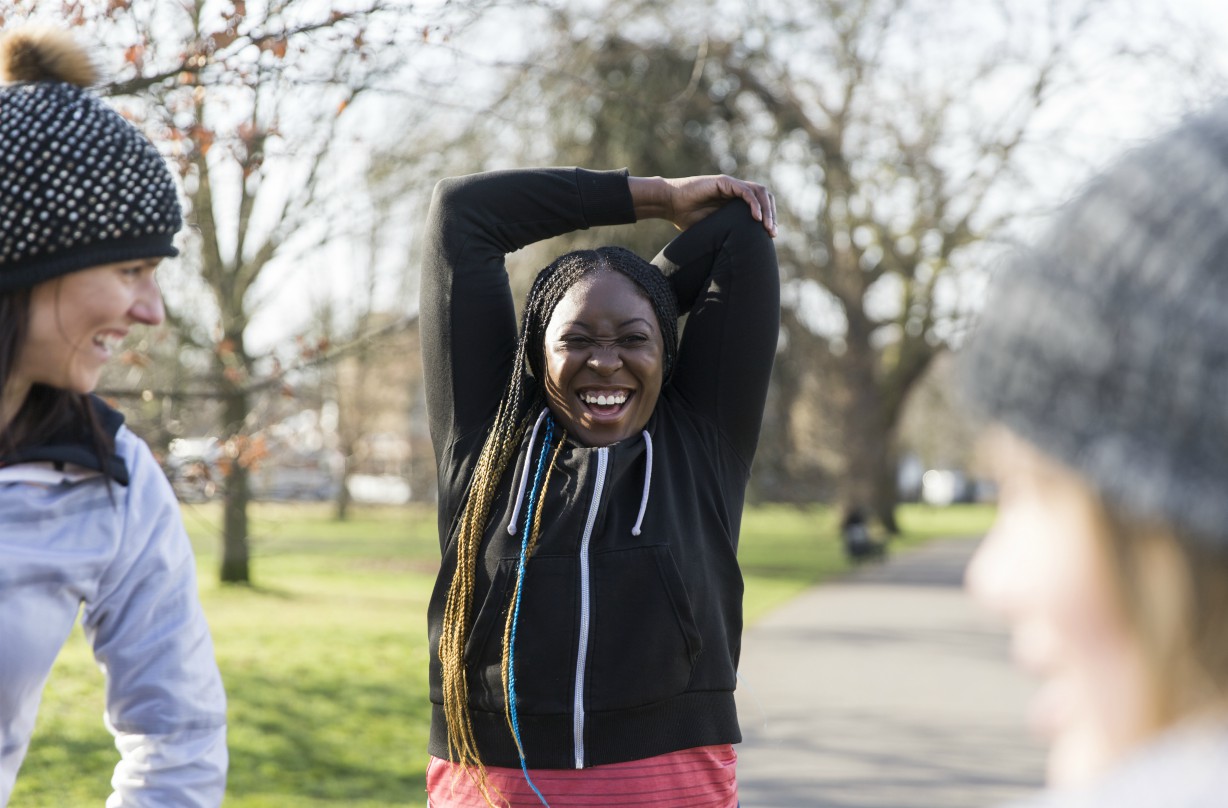How to reach your ideal weight in the New Year - without a fad diet

Parenting advice, hot topics, best buys and family finance tips delivered straight to your inbox.
You are now subscribed
Your newsletter sign-up was successful
Finding your ideal weight is about feeling good about yourself and your body – not hitting a set weight on the scales. It’s about a size and shape that’s healthy and at which your body is comfortable.
Fad diets don’t work in the long-term because they’re not sustainable, says Dr Melanie Wynne-Jones. "It’s more important to find a long-term, healthier way of eating that satisfies you, is affordable, suits your lifestyle and provides all the nutrients you need."
Address emotional issues
"Most of us know what to eat," says BBC Breakfast‘s Dr Rangan Chatterjee. "The question, though, is why are we choosing foods that expand our waistlines? Often it’s to do with stress, lack of time and anxiety."
Those are the issues we need to get a handle on before we can find our ideal weight successfully.
- Keep it real: Eat food as close to its natural state as possible – fruit and veg, nuts and seeds. And avoid too many processed foods, takeaways and ready meals.
- Know what you’ve eaten each day: It’s easy to lose track, especially with snacks and drinks loaded with hidden calories. Simply write down what you eat each day or use a smartphone app – see nhs.uk/livewell
- Don’t eat on the go: It doesn’t give your body a chance to register signals between the stomach and brain that you’re full. Sit down to eat meals, chew slowly and savour each mouthful.
- Cut back, not out: Don’t impose unrealistic food bans on yourself and prioritise the positives – think what you can eat, not what you can’t. You’ll find it far easier to stick to.
Hormones can affect your ideal weight
Falling hormone levels around and after menopause mean less muscle mass and energy burned, and more fat, stored mostly around your middle.
Here’s how to fight back and reach your ideal weight:
- Build muscle: Weight-bearing or resistance exercise at least three times a week is crucial now.
- Eat less: You need around 100-200 fewer calories after menopause. ‘Use a smaller plate and fill it with more veg, pulses and whole grains, and fewer fatty/sugary foods,’ says Dr Mel.
- Control stress: Try relaxation techniques such as mindfulness and tai chi. American researchers found that just 30 minutes of yoga a week helps prevent middle-age spread.
- Prioritise sleep: Research suggests that getting fewer than seven hours a night raises your obesity risk. Lack of sleep affects your circadian rhythms, which regulate appetite, metabolism, and how and where.
Don’t forget exercise
Regular activity is crucial to help you shape up and to reduce your risk of many different diseases, but you need to find your ‘happy’ workout if you’re going to stick at it.
- Ditch the gym: If you don’t enjoy it, don’t go. Pick an activity you like. Gardening or dancing, for example, can be just as effective if you do them regularly. It needn’t cost much. Gym membership, exercise classes and workout kits can be pricey. But just get outside and walk. It’s one of the best exercises to do, and it’s free.
- Build activity into your day: You’re more likely to do exercise if it’s an established part of your weekly routine, such as walking to work, the shops or a weekly club, or simply taking the stairs instead of the lift.
3 steps to success for your ideal weight
Life coach Karen Meager, an expert in neuro-linguistic programming, gives her top tips to finding your ideal weight:
Parenting advice, hot topics, best buys and family finance tips delivered straight to your inbox.
- Break weight loss into manageable chunks: Don’t say, ‘I’m going to lose three stone.’ Say: ‘This week I’ll eat healthily for three days.’ Your brain can’t cope with being motivated for long periods.
- Build ‘healthy’ habits: Ditch unachievable drastic changes. Instead, steadily introduce useful routines – like a green tea and a handful of almonds in place of a cuppa and six biscuits!
- Visualise your success: It’s motivating to picture your end goal. Think of yourself climbing the stairs without gasping for breath, and choose a photo or collection of words that represent your goal. Stick them somewhere prominent, like the fridge, to help you ask questions like, ‘Should I really have another glass of wine?’